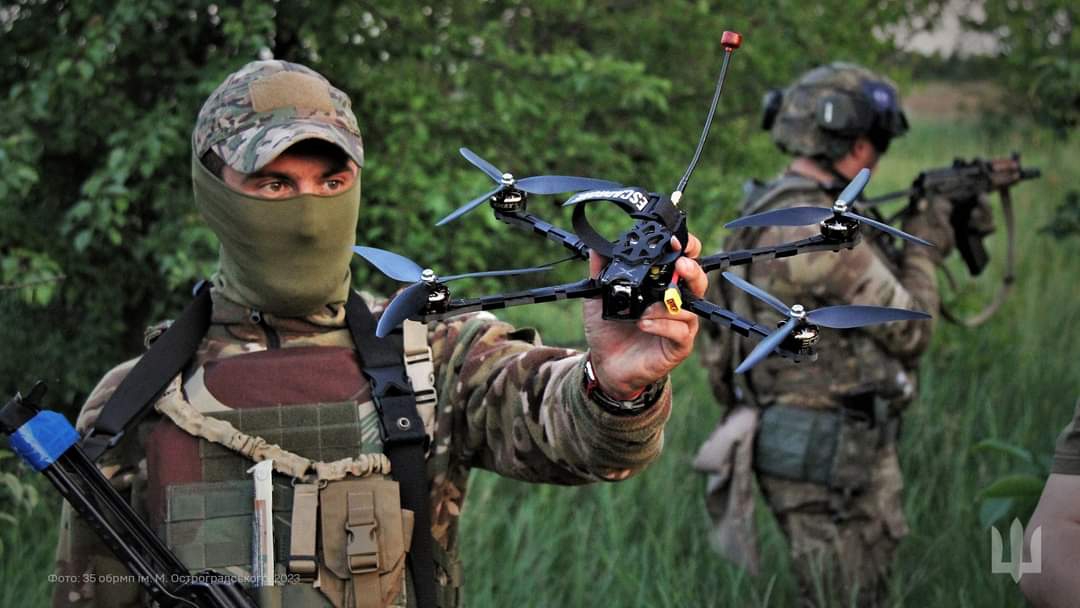Come Back Alive Foundation to buy night FPV drones
The Come Back Alive Foundation is launching a fundraiser for FPV drones with a nighttime thermal imaging camera. The Foundation's press service announced this. Within the "Operation Unity 2: New Year's Salute" project, together with the UNITED24 Foundation and monobank, the Foundation is launching a fundraising campaign worth UAH 220 million.
The project will purchase 5,000 FPV drones and ammunition for them. Of these, 3,000 drones will be equipped with special thermal imaging cameras.
 FPV drone in the Defense Forces of Ukraine. Photo credits: 35th Marine Brigade
FPV drone in the Defense Forces of Ukraine. Photo credits: 35th Marine Brigade
Unmanned combat aerial vehicles with thermal imaging optics will enable the Ukrainian military to conduct operations at night and destroy enemy vehicles and infantry in any conditions.
In addition, the project covers the installation of a standardized warhead produced by the Ukrainian industry on drones instead of the traditional homemade ammunition. This will greatly simplify maintenance and save the military from possible accidents.
 Parts of ammunition for FPV drones. Photo credits: Come Back Alive Foundation
Parts of ammunition for FPV drones. Photo credits: Come Back Alive Foundation
Within the first Operation Unity, Ukrainian volunteers ordered two types of warheads, HEAT and high-explosive incendiary warheads, to destroy enemy manpower.
Night FPV drones
The Russian invasion forces are currently ahead of Ukraine in the number of nighttime unmanned combat aerial vehicles used.
That is why the new project is so important for equalizing opportunities. Drones with thermal imaging optical devices are somewhat more expensive than their mass-produced counterparts. They typically use relatively cheap commercially available Chinese thermal imaging cameras, which cost around £300.
With the introduction of long-range FPV drones, military logistics in the near-front area and on the front line have become complicated due to periodic attacks, and, therefore, have partially shifted to the dark time of the day when they are inactive.
The emergence of "night" drones will complicate such movements in some parts of the frontline.
In addition, FPV drones with thermal imaging cameras can be extremely effective during nighttime assaults.